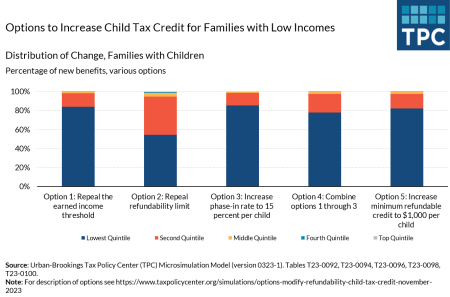What is taxed and what isn’t can be confusing. In the case of disability pay, whether it is taxed or not usually depends on who paid for the disability insurance coverage. Perhaps your employer paid for your disability coverage, and you were covered as a fringe benefit. In that case, when you are disabled and the coverage kicks in, the benefits you receive are taxable.
However, what if you paid for your disability insurance yourself, with after-tax dollars? Many insurance companies offer disability policies, and if you buy one, it is usually out of your own pocket, which means after tax. In that case, the payments you later receive on disability are tax-free.
This dividing line may sound simple, and it can be. Yet there are many tax disputes over these kinds of issues. Then, when you combine several tax rules, the complexity gets worse. That’s what happened in Fernandez v. Commissioner, 138 T.C. 378 (2012).
After her divorce, Shannon Fernandez received payments relating to her ex-husband’s disability. Her husband had been receiving the payments tax-free since 1993 after he was disabled while working for the L.A. County Sheriff’s Department. When she started receiving payments in 2007 after divorce, Shannon figured that the payments were still tax-free. However, the IRS and the Tax Court said otherwise and wanted her to pay tax on the payments.
Under the tax code, most payments to compensate you for being injured—including most legal settlements—may be taxable or not, depending on your injuries. If you have non-physical injuries like emotional distress, damage payments are taxed. Only if your injuries are physical are the compensatory payments tax-free.
Yet there is an exception even here. In the case of worker’s compensation payments for personal injuries, they are excluded from income under Section 104. Unlike other payments, the injuries do not even have to be physical. Thus, mental and emotional injuries covered by worker’s compensation can count in the tax-free column too.
What’s more, even retirement payments can be tax-free, provided that they are received under a worker’s compensation act. The IRS says so in IRS Publication 15-A. Normally, of course, pensions can be socked away tax-free, and keep building tax-free. Yet when retirement payments commence, the retirement payments are normally taxed.
The worker who socked away the retirement benefits is taxed. Normally the spouse or the former spouse are all taxed, assuming (in the latter case) that the pension benefits are divided in divorce. An order dividing a pension is called a qualified domestic relations order.
In Shannon Fernandez’s case, her divorce was finalized in 2007. It awarded her with a percentage of her former husband’s retirement benefits. The disability retirement pay commenced when her husband became disabled. He received service-connected disability retirement benefits from 1993 until 2007.
In that year, Shannon received $11,850 in payments. She received an IRS Form 1099‑R from the L.A. Sheriff reporting it as taxable, but she didn’t include it on her tax return. The IRS audited her, and said it was taxable.
Shannon disagreed so went to Tax Court. She argued that the money was tax-free because she was the former spouse of the participant. She also argued she should step into his shoes and get the same tax treatment he did. After all, she and her husband got the payments tax-free all those years since 1993 while they were married.
It was unfair to tax her once they were divorced. The IRS disagreed with every argument, saying her monies were retirement monies divided in divorce, so they were taxable. Even so, the Tax Court agreed with the IRS. The retirement issue was resolved by statute, the court said.
As to Shannon’s argument that she stepped into her ex’s shoes, the court said that she wasn’t the one who was injured. The injury exclusion has been in the tax code since 1918, said the court, but hers was a new argument not covered by the statute.
Sometimes, tax language in a legal settlement agreement can make a big difference in the tax treatment and how the IRS sees it. However, the IRS isn’t bound by it. In another case, Ktsanes v. Commissioner, T.C. Summ. Op. 2014-85, the taxpayer worked for a college district in Orange County, California. In connection with his employment, Ktsanes participated in a group long-term disability insurance program. The premiums were paid by Ktsanes’s employer, and were not included in Ktsanes’s income.
You can probably already guess how this tax case came out. Ktsanes developed Bell’s palsy, which caused him to be unable to continue working for the college district. He filed a claim for long-term disability, but the insurance company denied it. The company said that Ktsanes was not disabled enough to qualify.
Ktsanes eventually sued the company and settled for $65,000. He did not report it on his taxes, and the IRS said it was taxable and sent him a tax bill. When he went to Tax Court, he had a number of arguments why the money should be tax-free.
For the Tax Court, though, this was all about who paid the premiums for the insurance coverage. His employer paid them, and the premium payments were not deducted from his pay. In essence, then, this was extra money, not something he had paid for. He even tried arguing that the pay was really in the nature of physical injury or sickness payments, so could be excluded as that type of damages.
The Tax Court rejected his arguments and found the money to be taxable. The moral of these cases may be to take taxes into account when you are considering disability coverage. The same goes for your existing disability coverage. If you have it, consider whether the benefits (if you ever need them) will be taxable or tax-free. That can make a big difference in how far the payments go.
Read the full article here








